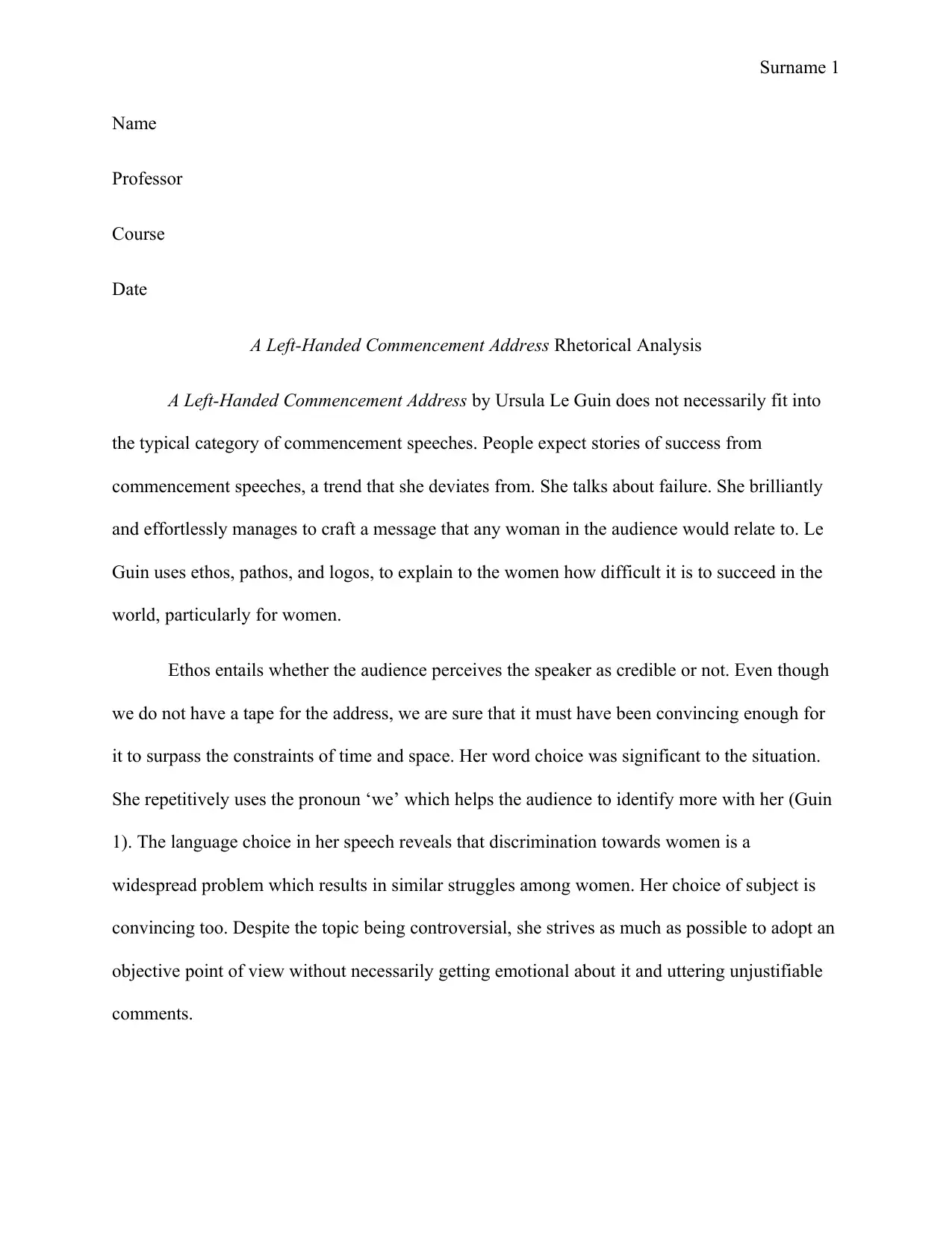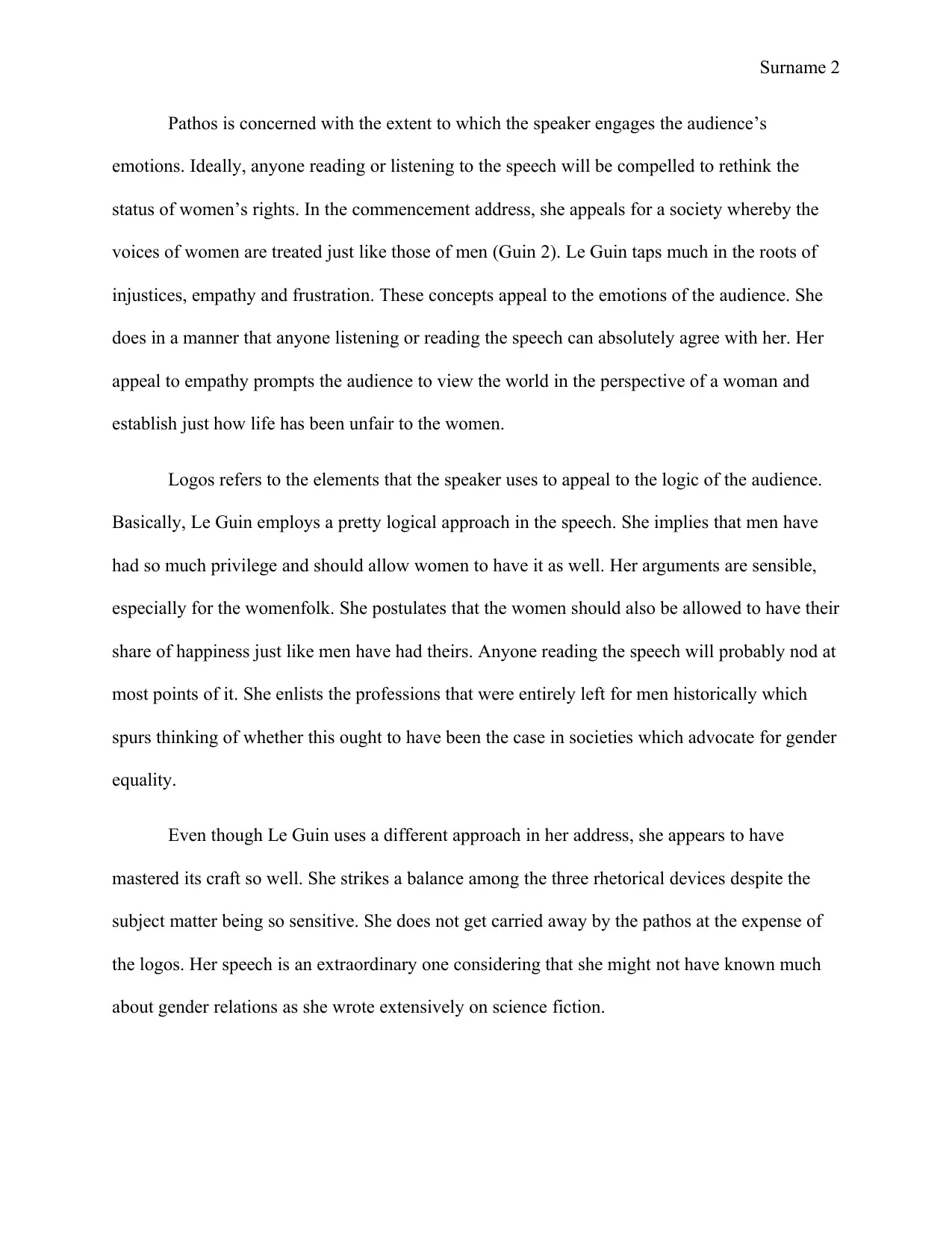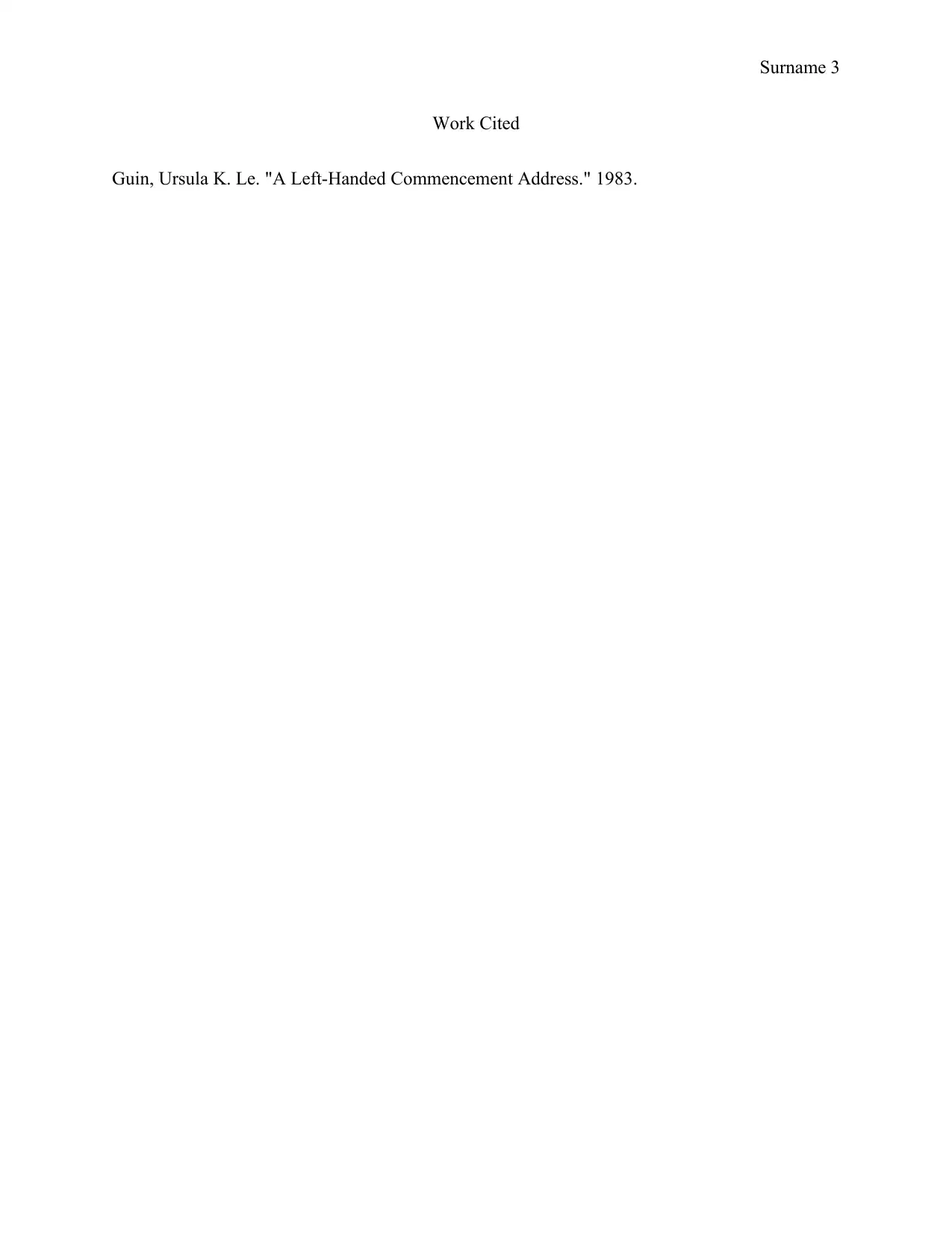A Rhetorical Analysis of Ursula K. Le Guin's Commencement Address
VerifiedAdded on 2022/09/29
|3
|599
|19
Report
AI Summary
This report provides a detailed rhetorical analysis of Ursula K. Le Guin's commencement address, focusing on her use of ethos, pathos, and logos. The analysis explores how Le Guin effectively conveys her message about women's rights and gender equality. The report examines how Le Guin uses these rhetorical devices to connect with the audience, appeal to their emotions, and present logical arguments. It highlights her use of inclusive language and her ability to balance the different rhetorical elements. The report also discusses the historical context of the speech and its lasting impact. The analysis emphasizes Le Guin's unique approach to the commencement speech format and her ability to address sensitive topics in a compelling and thought-provoking manner.
1 out of 3





![[object Object]](/_next/static/media/star-bottom.7253800d.svg)